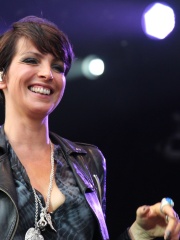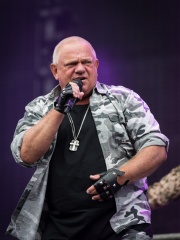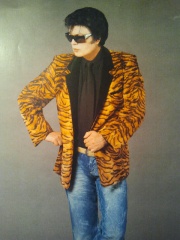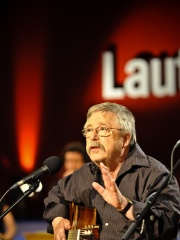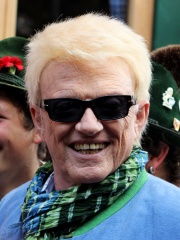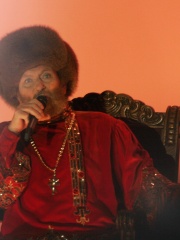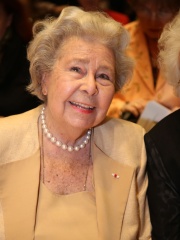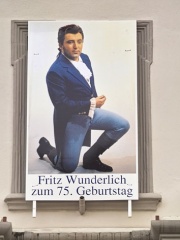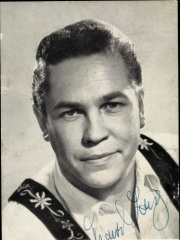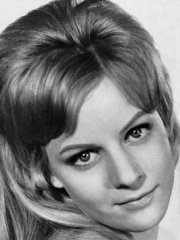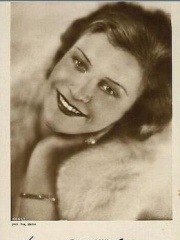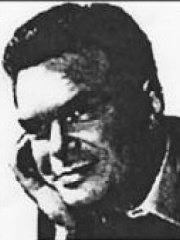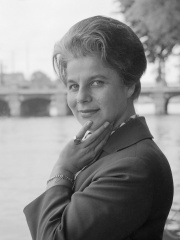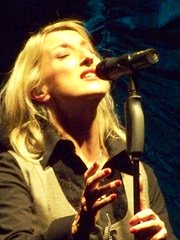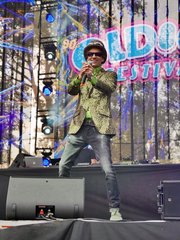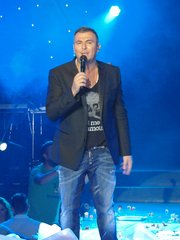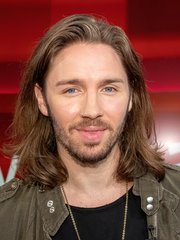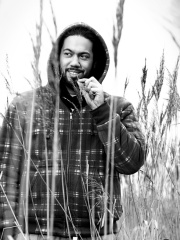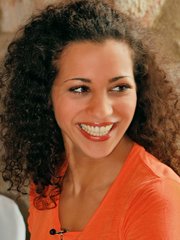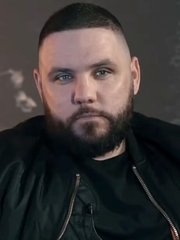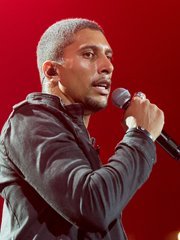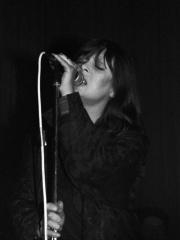
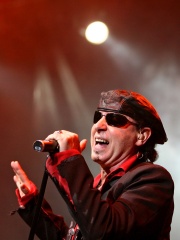
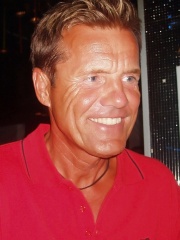
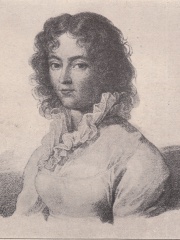

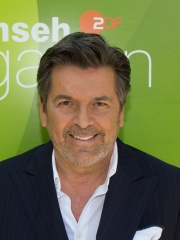
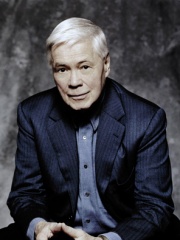
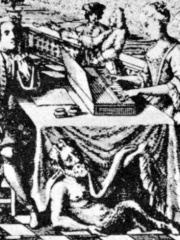
The Most Famous
SINGERS from Germany
Top 10
The following people are considered by Pantheon to be the top 10 most legendary German Singers of all time. This list of famous German Singers is sorted by HPI (Historical Popularity Index), a metric that aggregates information on a biography's online popularity. Visit the rankings page to view the entire list of German Singers.

1. Nico (1938 - 1988)
With an HPI of 76.91, Nico is the most famous German Singer. Her biography has been translated into 48 different languages on wikipedia.
Christa Päffgen (German pronunciation: [ˈkʁɪsta ˈpɛfɡn̩]; 16 October 1938 – 18 July 1988), known by her stage name Nico, was a German singer, songwriter, actress and model. Nico had roles in films including Federico Fellini's La Dolce Vita (1960) and Andy Warhol's Chelsea Girls (1966). At the insistence of Warhol, she sang lead on three songs of the Velvet Underground's debut album, The Velvet Underground & Nico (1967). At the same time, she released her debut album, Chelsea Girl (1967), composed of songs written by other musicians. At the suggestion of her friend Jim Morrison, she started writing her own material, using a harmonium, not traditionally a rock instrument. John Cale of the Velvet Underground became her musical arranger and produced The Marble Index (1968), Desertshore (1970), The End... (1974) and other albums. In the 1980s, Nico toured extensively in Europe, United States, Australia and Japan. After a concert in Berlin in June 1988, she went on holiday in Ibiza, where she died from a cerebral haemorrhage following a bicycling accident.

2. Klaus Meine (b. 1948)
With an HPI of 74.15, Klaus Meine is the 2nd most famous German Singer. His biography has been translated into 43 different languages.
Klaus Meine (German pronunciation: [klaʊs ˈmaɪnə]; born 25 May 1948) is a German singer, best known as the longtime frontman and primary lyricist of the hard rock band Scorpions. Meine and guitarist Rudolf Schenker are the only two members of the group to appear on every Scorpions album, though he did not join the band until 1969, four years after its founding. Meine placed at number 22 on Hit Parader's 'Top Heavy Metal Vocalists of All Time' list in 2006.

3. Dieter Bohlen (b. 1954)
With an HPI of 72.31, Dieter Bohlen is the 3rd most famous German Singer. His biography has been translated into 51 different languages.
Dieter Bohlen (German: [ˈdiːtɐ ˈboːlən]; born Dieter Günter Bohlen on 7 February 1954) is a German songwriter, producer, singer and television personality. He first achieved fame as a member of the pop duo Modern Talking in the 1980s, and has since produced numerous German and international artists. He is also a judge on casting shows Deutschland sucht den Superstar and Das Supertalent.

4. Constanze Mozart (1762 - 1842)
With an HPI of 71.75, Constanze Mozart is the 4th most famous German Singer. Her biography has been translated into 34 different languages.
Maria Constanze Cäcilia Josepha Johanna Aloysia Mozart (née Weber, Austrian German: [kɔnˈstantsə ˈmoːtsart ˈveːbɐ]; 5 January 1762 – 6 March 1842) was a German soprano, later a businesswoman. She is best remembered as the spouse of the composer Wolfgang Amadeus Mozart, who from the evidence of his letters was deeply in love with her throughout their nine-year marriage. Following her husband's sudden death in 1791, Constanze Mozart escaped poverty and supported her family through concertizing and promotion of her husband's memory; she was responsible in part for the extensive posthumous publication of her husband's works. Constanze is also regarded, less positively, as a source of mythology concerning her husband's life, deriving in part from the biography she jointly wrote with her second husband, Georg Nikolaus von Nissen.
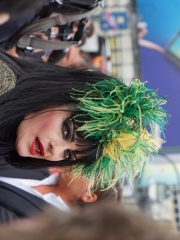
5. Nina Hagen (b. 1955)
With an HPI of 70.30, Nina Hagen is the 5th most famous German Singer. Her biography has been translated into 57 different languages.
Catharina "Nina" Hagen (German: [ˈniːna ˈhaːɡn̩] ; born 11 March 1955) is a German singer, songwriter, and actress. She is known for her theatrical vocals and rise to prominence during the punk and Neue Deutsche Welle movements in the late 1970s and early 1980s. She is known as "The Godmother of German Punk". Born and raised in the former East Berlin, German Democratic Republic, Hagen began her career as an actress when she appeared in several German films alongside her mother Eva-Maria Hagen. Around that same time, she joined the band Automobil and released the schlager single "Du hast den Farbfilm vergessen". After her stepfather Wolf Biermann's East German citizenship was withdrawn in 1976, Hagen followed him to Hamburg. Shortly afterwards, she was offered a record deal from CBS Records and formed the Nina Hagen Band. Their self-titled debut album was released in late 1978 to critical acclaim and was a commercial success selling over 250,000 copies. The band released one more album, Unbehagen, before their break-up in 1979. In 1982, Hagen signed a new contract with CBS and released her debut solo album NunSexMonkRock, which became her first record to chart in the United States. She followed it with two more albums: Fearless (1983) and Nina Hagen in Ekstasy (1985), before her contract with CBS expired and was not renewed. In 1989, she was offered a record deal from Mercury Records. She released three albums on the label: Nina Hagen (1989), Street (1991), and Revolution Ballroom (1993). However, none of the albums achieved notable commercial success. Hagen made her musical comeback with the release of her album Return of the Mother (2000). Besides her musical career, Hagen is also a voice-over actress. She wrote three autobiographies: Ich bin ein Berliner (1988), Nina Hagen: That's Why the Lady Is a Punk (2003), and Bekenntnisse (2010). She is also noted for her human and animal rights activism.

6. Sandra (b. 1962)
With an HPI of 70.00, Sandra is the 6th most famous German Singer. Her biography has been translated into 43 different languages.
Sandra Ann Lauer (born 18 May 1962), later Sandra Cretu, commonly known mononymously as Sandra (German pronunciation: [ˈzandʁa]), is a German pop singer who enjoyed mainstream popularity in the 1980s and early 1990s with a string of European hit singles, produced by her then-husband and musical partner, Michael Cretu, most notably "(I'll Never Be) Maria Magdalena" (1985), "In the Heat of the Night" (1985), "Everlasting Love" (1987), "Secret Land" (1988), "Hiroshima" (1990), and "Don't Be Aggressive" (1992). Her albums Into a Secret Land (1988) and Close to Seven (1992) have won Sandra high critical acclaim. Prior to embarking on a solo career, Sandra was the lead singer of the all-female disco trio Arabesque, which had a following in Japan and the Soviet Union. Also, between 1990 and 2003, she provided vocals on album releases of the very successful musical project Enigma, which had top 10 hits in North America and the United Kingdom. A cult star with a devoted fan base, Sandra remains one of the most popular singers of the 1980s in Continental Europe. During the height of her popularity, she even managed to outsell Madonna in a number of countries around the world. With sales in excess of 33 million records worldwide, Sandra has established her position as the most successful German female vocalist.

7. Thomas Anders (b. 1963)
With an HPI of 69.75, Thomas Anders is the 7th most famous German Singer. His biography has been translated into 43 different languages.
Bernd Weidung (born 1 March 1963), known professionally as Thomas Anders, is a German singer, songwriter and record producer. He is best known as the vocalist of the former pop duo Modern Talking. Starting his singing career while still in school, Anders unsuccessfully attempted to establish himself as a Schlager artist for several years. After forming the Eurodisco duo Modern Talking with Dieter Bohlen in 1983, they became a worldwide sensation with their hit "You're My Heart, You're My Soul". They followed up with a string of other hits, namely "You Can Win If You Want", "Cheri, Cheri Lady", "Brother Louie", "Atlantis Is Calling (S.O.S. for Love)", "Geronimo's Cadillac", and "Jet Airliner", before dissolving in 1987. In 1998, they reunited and produced several new songs such as "You Are Not Alone", "Sexy, Sexy Lover", "No Face, No Name, No Number", "Ready for the Victory", and "TV Makes the Superstar", before dissolving again in 2003. Their controversial break-ups led to several lawsuits and heavy coverage from the German tabloid press. During their two stints together, the duo sold 120 million records worldwide and received numerous sales certifications around the globe. After the two break-ups of Modern Talking, Anders performed as a solo artist during the 1990s and after 2003. During the first Modern Talking split, he released six studio albums, none of which managed to chart, whereas some singles such as "Love of My Own" achieved mediocre success. Only his Spanish language album Barcos de Cristal (1994) proved successful in Argentina, where its eponymous title track climbed to number 1. Following the second break-up, Anders started a more successful solo career, with his album This Time (2004) reaching number 14 in Germany and producing number 1 hits in Russia and Turkey. His 2010 album Strong reached Platinum status in Russia for sales of more than 650,000 copies. Two (2010), a collaboration album with Jörn-Uwe Fahrenkrog-Petersen reached number 11 in Germany, while his first German language album Pures Leben (2017) climbed at number 14. While being unable to match his success with Modern Talking with his solo career, Anders is considered a musical icon in Eastern Europe, where he is more revered than in his native country and regularly performs stadium tours and on New Year's Eve in Poland. In 2006, the Taras Shevchenko National University of Kyiv made him an honorary professor for "shaping the musical taste of a generation", and he holds the distinction for being the best-selling foreign artist of all time in Russia.

8. Dietrich Fischer-Dieskau (1925 - 2012)
With an HPI of 69.13, Dietrich Fischer-Dieskau is the 8th most famous German Singer. His biography has been translated into 39 different languages.
Dietrich Fischer-Dieskau (German: [ˌdiːtʁɪç ˌfɪʃɐ ˈdiːskaʊ̯] ; 28 May 1925 – 18 May 2012) was a German lyric baritone and conductor of classical music. One of the most famous Lieder (art song) performers of the post-war period, he is best known as a singer of Franz Schubert's Lieder, particularly "Winterreise" of which his recordings with accompanists Gerald Moore and Jörg Demus are still critically acclaimed half a century after their release. Because he recorded an array of repertoire (spanning centuries), musicologist Alan Blyth asserted, "No singer in our time, or probably any other has managed the range and versatility of repertory achieved by Dietrich Fischer-Dieskau. Opera, Lieder and oratorio in German, Italian or English came alike to him, yet he brought to each a precision and individuality that bespoke his perceptive insights into the idiom at hand." In addition, he recorded in French, Russian, Hebrew, Latin and Hungarian. He was described as "one of the supreme vocal artists of the 20th century" and "the most influential singer of the 20th Century". Fischer-Dieskau was ranked the second greatest singer of the century (after Jussi Björling) by Classic CD (United Kingdom) "Top Singers of the Century" Critics' Poll (June 1999). The French dubbed him "Le miracle Fischer-Dieskau" and Dame Elisabeth Schwarzkopf called him "a born god who has it all." At his peak, he was greatly admired for his interpretive insights and exceptional control of his soft, beautiful voice. He dominated both the opera and concert platforms for over thirty years.

9. Anna Magdalena Bach (1701 - 1760)
With an HPI of 68.02, Anna Magdalena Bach is the 9th most famous German Singer. Her biography has been translated into 30 different languages.
Anna Magdalena Bach (née Wilcke; 22 September 1701 – 27 February 1760) was a German professional singer and the second wife of Johann Sebastian Bach.
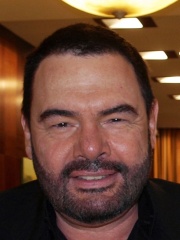
10. Marian Gold (b. 1954)
With an HPI of 67.70, Marian Gold is the 10th most famous German Singer. His biography has been translated into 25 different languages.
Marian Gold (born Hartwig Schierbaum; 26 May 1954) is a German singer-songwriter who gained fame as the lead singer of the German synth-pop band Alphaville, but also has recorded as a solo artist. He is known for his tenor multi-octave vocal range.
People
Pantheon has 151 people classified as German singers born between 1701 and 2007. Of these 151, 104 (68.87%) of them are still alive today. The most famous living German singers include Klaus Meine, Dieter Bohlen, and Nina Hagen. The most famous deceased German singers include Nico, Constanze Mozart, and Dietrich Fischer-Dieskau. As of April 2024, 16 new German singers have been added to Pantheon including Claudia Brücken, Andrea Jürgens, and Sin With Sebastian.
Living German Singers
Go to all RankingsKlaus Meine
1948 - Present
HPI: 74.15
Dieter Bohlen
1954 - Present
HPI: 72.31
Nina Hagen
1955 - Present
HPI: 70.30
Sandra
1962 - Present
HPI: 70.00
Thomas Anders
1963 - Present
HPI: 69.75
Marian Gold
1954 - Present
HPI: 67.70
Nena
1960 - Present
HPI: 66.46
Udo Dirkschneider
1952 - Present
HPI: 66.41
Tarkan
1972 - Present
HPI: 65.57
Fancy
1946 - Present
HPI: 65.13
Wolf Biermann
1936 - Present
HPI: 64.20
Heino
1938 - Present
HPI: 62.31
Deceased German Singers
Go to all RankingsNico
1938 - 1988
HPI: 76.91
Constanze Mozart
1762 - 1842
HPI: 71.75
Dietrich Fischer-Dieskau
1925 - 2012
HPI: 69.13
Anna Magdalena Bach
1701 - 1760
HPI: 68.02
Ivan Rebroff
1931 - 2008
HPI: 66.96
Christa Ludwig
1928 - 2021
HPI: 66.15
Fritz Wunderlich
1930 - 1966
HPI: 63.09
Franzl Lang
1930 - 2015
HPI: 62.93
Heidi Brühl
1942 - 1991
HPI: 60.75
Renate Müller
1906 - 1937
HPI: 60.09
Walter Andreas Schwarz
1913 - 1992
HPI: 59.88
Irmgard Seefried
1919 - 1988
HPI: 59.50
Newly Added German Singers (2025)
Go to all RankingsClaudia Brücken
1963 - Present
HPI: 51.91
Andrea Jürgens
1967 - 2017
HPI: 47.65
Sin With Sebastian
1971 - Present
HPI: 47.20
Antonis Remos
1970 - Present
HPI: 46.72
Sabrina Setlur
1974 - Present
HPI: 44.36
Andrea Haugen
1969 - 2021
HPI: 43.21
Gil Ofarim
1982 - Present
HPI: 41.68
Samy Deluxe
1977 - Present
HPI: 41.49
Nadja Benaissa
1982 - Present
HPI: 41.45
Fler
1982 - Present
HPI: 40.68
Cro
1990 - Present
HPI: 40.39
Andreas Bourani
1983 - Present
HPI: 40.10
Overlapping Lives
Which Singers were alive at the same time? This visualization shows the lifespans of the 25 most globally memorable Singers since 1700.

